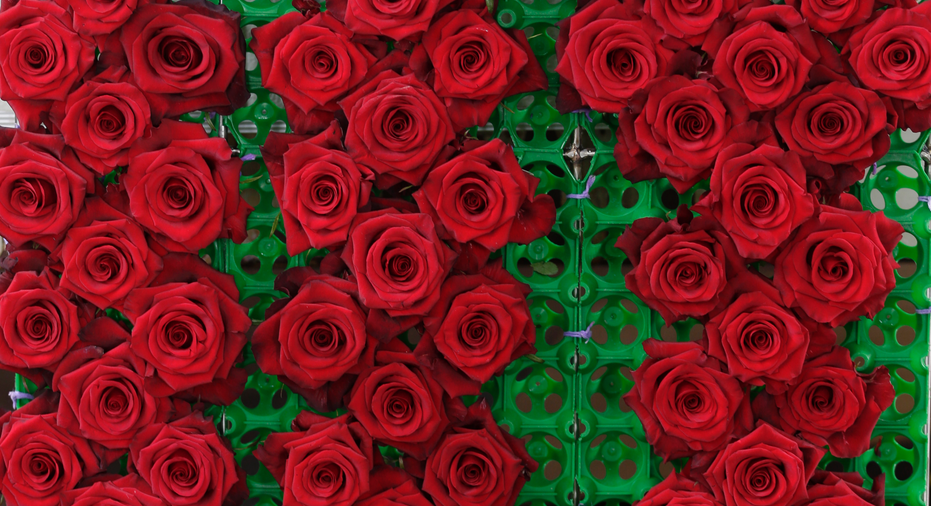Preserved roses bring Valentine's Day sales jolt to Ecuador

TABACUNDO, Ecuador – In a warehouse north of Ecuador's capital, a small, busy army of dexterous workers puts the final touches on a shipment of made-to-order roses with tones as diverse as the colors of a rainbow suffused in fragrance capable of seducing even the most demanding nose.
Each petal is custom made for foreign clients whose orders multiply every year in the run up to Valentine's Day. For example, a client in Qatar recently ordered a shipment in the maroon and white colors of that nation's flag.
"It's a small detail that makes a beautiful gift," says Patricia Cordova, admiring her delicate work on a lilac-colored flower bound for Germany.
Cordova works at Sisapamba, one of a dozen companies in this South American nation that have woken up to the potential of preserved flowers. The two-day process involves cutting a flower at full bloom, dipping it into a plant-based solution to extract the natural colors and then infusing it with a pigment of the customer's choice. Additional colors and designs are applied using an airbrush.
The result is a multicolored bouquet as vibrant as a painter's palette but whose petals keep their natural softness and require no sunlight or water to last a year or more.
The technology has been around for decades and is especially popular in Japan. But in Ecuador, the world's second-largest exporter of roses, it took root only recently, as a result of an economic crisis that forced flower growers to diversify their offerings and focus on higher-end products.
A glut of fresh-cut flowers driven by new producers such as the African nations of Kenya and Uganda has depressed global prices for roses, while Ecuador's use of the U.S. dollar has cost local growers competitiveness against rivals in Colombia, where the peso has lost nearly half its value since 2014.
Still, the roughly $15 million in preserved flowers sold by Ecuador's farms represent only a tiny fraction of the more than $800 million that the country's flower industry exports annually. In 2017, Ecuador delivered 14,300 tons of flowers in the weeks leading up to Valentine's Day and this year exports are forecast to surpass 15,000 tons.
"Preserved flowers are a way for Ecuador to carve out a niche in certain countries," said Alejandro Martinez, president of Ecuador's flower exporters' association.



















